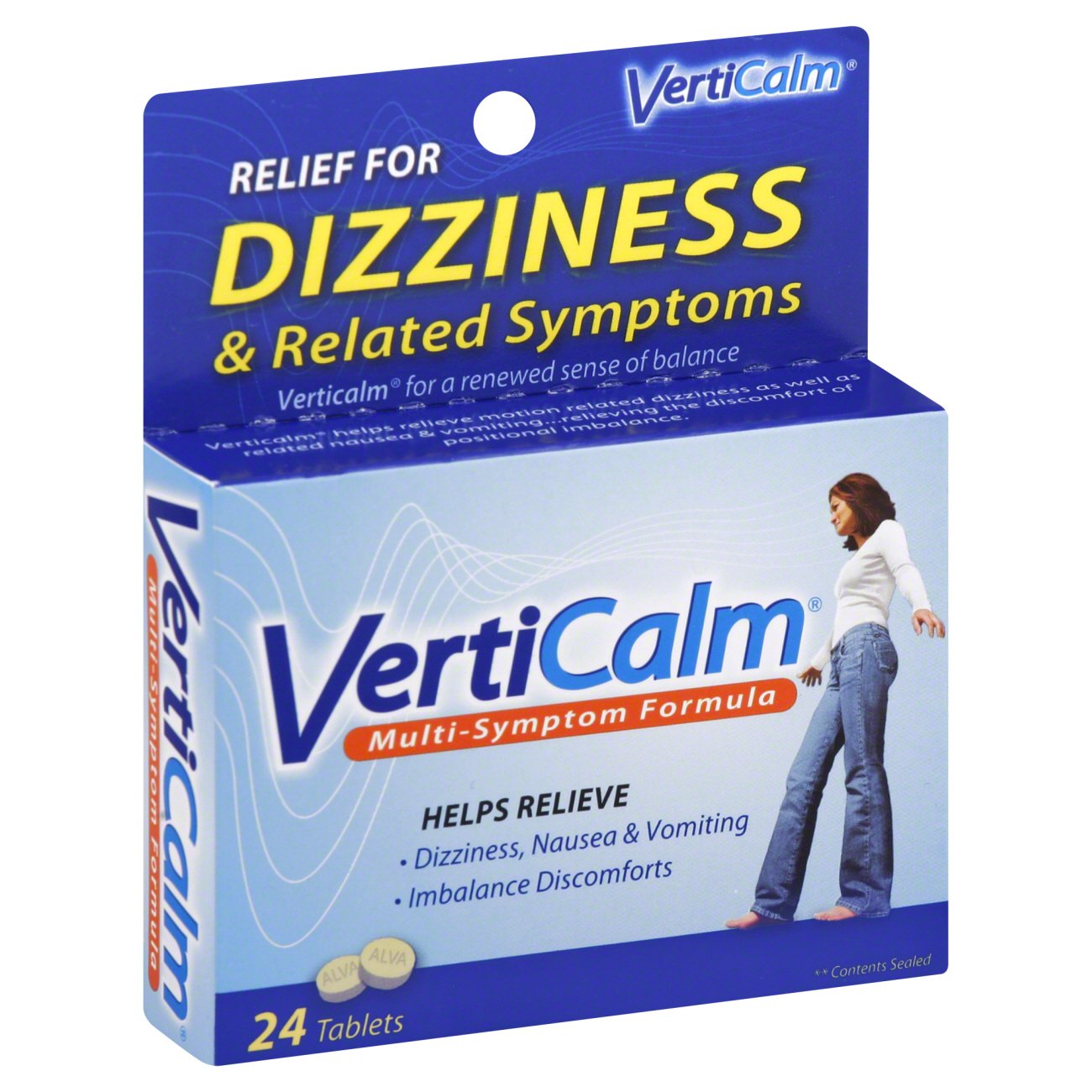Medication for dizziness and vertigo offers a lifeline to those struggling with these debilitating conditions. This guide delves into the types of medications available, their efficacy, safety concerns, and alternative therapies, empowering you with the knowledge to manage your symptoms effectively.
Understanding the underlying causes and treatment options for dizziness and vertigo is crucial for alleviating these distressing symptoms and regaining your quality of life. Let’s embark on a journey to explore the world of medication for dizziness and vertigo, arming you with the information you need to make informed decisions about your health.
Common Medications for Dizziness and Vertigo

Medications are often used to treat dizziness and vertigo. These medications work by either suppressing the activity of the vestibular system or by improving blood flow to the inner ear.
The type of medication used to treat dizziness and vertigo will depend on the underlying cause of the condition.
If you’re experiencing dizziness or vertigo, it’s important to seek medical attention to determine the underlying cause. Dizziness can be caused by a variety of factors, including possible causes of vertigo such as inner ear problems, neurological disorders, and medications.
Once the cause of your dizziness has been identified, your doctor can recommend the appropriate medication or treatment to help you manage your symptoms.
Table of Medications for Dizziness and Vertigo, Medication for dizziness and vertigo
The following table provides a summary of the different types of medications used to treat dizziness and vertigo, along with their mechanisms of action and side effects:
| Medication Name | Type of Medication | Mechanism of Action | Side Effects |
|---|---|---|---|
| Meclizine | Antihistamine | Blocks the effects of histamine on the vestibular system | Drowsiness, dry mouth, blurred vision |
| Prochlorperazine | Phenothiazine | Blocks the effects of dopamine and serotonin on the vestibular system | Drowsiness, dizziness, nausea |
| Diazepam | Benzodiazepine | Enhances the effects of GABA in the brain, which has a calming effect on the vestibular system | Drowsiness, dizziness, impaired coordination |
| Betahistine | Histamine analog | Increases blood flow to the inner ear | Headache, nausea, flushing |
Efficacy and Safety of Medications for Dizziness and Vertigo
Medications for dizziness and vertigo can effectively relieve symptoms, but their efficacy and safety vary depending on the underlying cause and individual patient factors. Studies have shown that certain medications, such as anticholinergics and antihistamines, can effectively reduce symptoms of dizziness and vertigo caused by conditions like benign paroxysmal positional vertigo (BPPV) and Meniere’s disease.
Efficacy of Different Medications
- Anticholinergics:These medications block the action of acetylcholine, a neurotransmitter involved in balance and coordination. They are effective in treating dizziness and vertigo caused by BPPV and other inner ear disorders.
- Antihistamines:Antihistamines block the action of histamine, a neurotransmitter that can cause nausea and vomiting, which can worsen dizziness and vertigo. They are commonly used to treat motion sickness and vertigo caused by Meniere’s disease.
- Benzodiazepines:Benzodiazepines are sedatives that can reduce anxiety and muscle tension, which can contribute to dizziness and vertigo. They are sometimes used for short-term relief of severe symptoms.
- Vestibular suppressants:These medications, such as meclizine and prochlorperazine, suppress the activity of the vestibular system, which is responsible for balance and spatial orientation. They are effective in treating dizziness and vertigo caused by various conditions.
Safety and Side Effects
Medications for dizziness and vertigo are generally safe when used as directed, but they can cause side effects. Common side effects include drowsiness, dry mouth, blurred vision, and constipation. More serious side effects, such as confusion, hallucinations, and seizures, are rare but can occur, especially in older adults or those with certain medical conditions.
Precautions and Contraindications
- Medications for dizziness and vertigo should be used with caution in people with liver or kidney disease, heart problems, or a history of seizures.
- Anticholinergics and antihistamines can interact with other medications, so it’s important to inform your doctor about all medications you are taking.
- Benzodiazepines can be habit-forming, so they should be used for short periods only.
- Vestibular suppressants can impair balance and coordination, so it’s important to avoid driving or operating machinery while taking these medications.
Drug Interactions and Adverse Effects of Medications for Dizziness and Vertigo

When taking medications for dizziness and vertigo, it is essential to be aware of potential drug interactions and adverse effects.
Medications for dizziness and vertigo can interact with other medications, such as blood thinners, sedatives, and antidepressants. These interactions can increase the risk of side effects or reduce the effectiveness of the medication.
Drug Interactions
- Blood thinners: Medications for dizziness and vertigo can increase the risk of bleeding when taken with blood thinners.
- Sedatives: Medications for dizziness and vertigo can cause drowsiness and dizziness, which can be exacerbated when taken with sedatives.
- Antidepressants: Medications for dizziness and vertigo can interact with antidepressants, increasing the risk of side effects such as nausea, vomiting, and diarrhea.
Adverse Effects
- Drowsiness: Medications for dizziness and vertigo can cause drowsiness, which can interfere with daily activities.
- Nausea and vomiting: Medications for dizziness and vertigo can cause nausea and vomiting, which can be distressing and interfere with daily life.
- Diarrhea: Medications for dizziness and vertigo can cause diarrhea, which can lead to dehydration and electrolyte imbalance.
| Drug Interaction | Adverse Effect |
|---|---|
| Blood thinners | Increased risk of bleeding |
| Sedatives | Increased drowsiness and dizziness |
| Antidepressants | Increased risk of nausea, vomiting, and diarrhea |
| N/A | Drowsiness |
| N/A | Nausea and vomiting |
| N/A | Diarrhea |
Patient Education and Counseling on Medications for Dizziness and Vertigo: Medication For Dizziness And Vertigo
Proper medication use is essential for managing dizziness and vertigo effectively. Here’s a patient education handout to guide you:
Dosage and Frequency
- Take medications exactly as prescribed by your doctor.
- Follow the instructions for when and how often to take the medication.
- Do not skip doses or take more than prescribed.
Potential Side Effects
Medications for dizziness and vertigo can cause side effects, including:
- Drowsiness
- Dry mouth
- Blurred vision
- Constipation
Storage
- Store medications in a cool, dry place.
- Keep them out of reach of children and pets.
- Dispose of expired or unused medications properly.
Other Tips
- Inform your doctor about any other medications or supplements you’re taking.
- Report any side effects to your doctor promptly.
- Avoid driving or operating heavy machinery while taking medications that cause drowsiness.
Alternative Therapies for Dizziness and Vertigo

In addition to medications, several alternative therapies may provide relief from dizziness and vertigo. These approaches focus on improving balance, reducing symptoms, and promoting overall well-being.
Alternative therapies for dizziness and vertigo include:
Acupuncture
- Acupuncture involves inserting thin needles into specific points on the body to stimulate the nervous system and promote healing.
- For dizziness and vertigo, acupuncture may help improve blood flow to the inner ear and reduce inflammation.
- Studies have shown that acupuncture can be effective in reducing the severity and frequency of dizziness and vertigo.
Physical Therapy
- Physical therapy involves exercises and techniques designed to improve balance and coordination.
- For dizziness and vertigo, physical therapy may include exercises to strengthen the neck and core muscles, improve posture, and retrain the balance system.
- Physical therapy can help reduce dizziness and vertigo by improving stability and reducing sensory conflicts that contribute to symptoms.
Lifestyle Modifications
- Lifestyle modifications involve making changes to daily habits to improve overall health and reduce dizziness and vertigo.
- These modifications may include:
- Avoiding triggers that cause dizziness or vertigo, such as certain head movements, bright lights, or loud noises.
- Getting regular exercise to improve balance and coordination.
- Eating a healthy diet that includes plenty of fruits, vegetables, and whole grains.
- Getting enough sleep.
- Managing stress.
- Lifestyle modifications can help reduce the severity and frequency of dizziness and vertigo by improving overall health and well-being.
Future Directions in the Treatment of Dizziness and Vertigo
The field of dizziness and vertigo treatment is constantly evolving, with new research and advancements emerging regularly. These advancements hold the promise of revolutionizing the management of these conditions and improving the quality of life for affected individuals.
Emerging Therapies and Technologies
Several promising therapies and technologies are currently being investigated for the treatment of dizziness and vertigo. These include:
-
-*Vestibular rehabilitation therapy (VRT)
VRT is a specialized form of physical therapy that aims to improve balance and reduce dizziness by retraining the brain and vestibular system.
-*Transcranial magnetic stimulation (TMS)
TMS uses magnetic pulses to stimulate specific areas of the brain involved in balance and dizziness.
-*Virtual reality (VR)
VR can be used to create immersive environments that simulate real-life situations that trigger dizziness or vertigo, allowing patients to practice coping mechanisms in a safe and controlled setting.
-*Drug delivery systems
New drug delivery systems are being developed to improve the efficacy and reduce the side effects of medications used to treat dizziness and vertigo.
Potential Future Directions
Based on current research and advancements, several potential future directions in the treatment of dizziness and vertigo can be speculated:
-
-*Personalized medicine
The development of personalized treatment plans tailored to individual patient characteristics, such as age, underlying medical conditions, and response to previous treatments.
-*Non-invasive treatments
A shift towards less invasive and more patient-friendly treatments, such as VRT, TMS, and VR.
-*Improved patient education and self-management
Empowering patients with knowledge and tools to better understand and manage their dizziness and vertigo symptoms.
-*Collaboration between healthcare professionals
Enhanced collaboration between different healthcare professionals, such as neurologists, otolaryngologists, and physical therapists, to provide comprehensive and multidisciplinary care for patients with dizziness and vertigo.
End of Discussion
Medication for dizziness and vertigo can significantly improve the lives of those affected by these conditions. By understanding the various treatment options, potential side effects, and alternative therapies, you can work with your healthcare provider to develop a personalized treatment plan that addresses your specific needs.
Remember, you are not alone in your journey towards managing dizziness and vertigo. With the right medication and support, you can regain your balance and live a fulfilling life.

